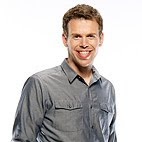Matter and Consciousness
I am very thankful that this entire book was not assigned. While I appreciate the intellectual challenge of having to respond to those who think/believe differently than I do, I found this book to be reductionistic, short-sighted, and crumbling under the weight of its own presuppositions. Churchland supposes to be writing to the average reader by examining the various approaches to the mind-body problem. His bias is dripping off of the page. He is quick to relegate all dualist arguments to religious and/or speculative without much warrant for his dismissal. He assumes that, because he uses the term "that is what it is..." that he has somehow addressed the differences between physical brain states and experiences of the soul. His criteria (or lack thereof) is based on the fundamentally flawed assumption that we require empirical evidence in order to identify a soul before we can accept that as a premise. He negates introspection as a legitimate source of knowledge, and is quick to assume his case is made. Not only is his approach less than academically honest, he fails to meet his own criteria in his own position. He fails by offering no evidence as to why things like thoughts and experiences correspond to brain states. For such an incredible thinker, I was disappointed by his lack of epistemic humility for positions other than his own.
I am not sure how this book might benefit me in my ministry. It helped me to see just how much I have grown from my time at Biola and how Drs. Moreland and DeWeese have prepared me to engage such arguments as these; and for that I am thankful.


0 Comments:
Post a Comment
<< Home